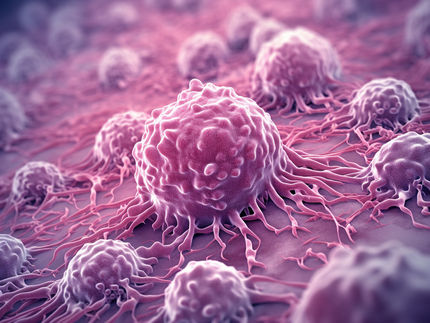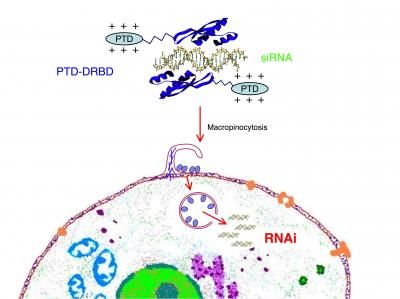Cancer Research Yields Promising Results
Closing Gap between Research Advances and Clinical Practice Crucial to Development of European
Every year, nearly one in four Europeans - a total of almost one million people - dies from cancer, giving Europe the dubious distinction of having amongst the highest cancer-related mortality rates in the world. Even as cancer remains a difficult disease to diagnose, often resulting in either poor diagnosis or misdiagnosis, the number of new cancer cases is set to double by 2020.
"Owing to the increased number of drug therapies for cancer and promotional activities by the pharmaceuticals companies, awareness of various diagnostic tools available in the market is now growing," says Mr. Raghavendra Chitta, Research Analyst with Frost & Sullivan. "Moreover, enhanced knowledge of the genes causing the disease is expected to drive the usage of tests that determine predisposition towards the disease and enable patient stratification for therapy selection in the near future."
For instance, a newly developed genetic profile of ovarian cancer is expected to predict the likely success of a particular treatment on a patient. By reducing this particular genetic profile to a few specific genes, researchers are poised to provide a platform for novel diagnostic tests based on either immunohistochemistry or on nucleic acid-based technologies (NATs).
Other advances include the discovery of a number of genetic mutations that can collectively raise bowel cancer risk and of a pair of genes increasing the risk of lung cancer. Such progress can facilitate earlier interventions and more effective disease management. The potential commercialisation of molecular diagnostic-based tests for lung cancer and oesophageal cancer can enable early detection and management of these diseases.
A high value cancer diagnostic tool that can quantify cancer tumour cells (CTC) in blood samples and a more sensitive and specific diagnostic test to detect and monitor patients for recurrence of bladder cancer are landmarks in the rapid advance of cancer diagnostics.
However, while there is considerable progress in understanding the disease, the continued gap between research findings and their translation to clinical applications poses a serious challenge. Physicians currently act as gatekeepers, limiting public access to new developments in cancer therapy and the emergent range of diagnostic tests.
"Closing this gap is critical and companies are already striving to form partnerships involving diverse groups such as researchers, treatment professionals, policymakers at all levels, consumers as well as the public and private health sectors," says Mr. Chitta.
The final prognosis for the European in-vitro cancer diagnostics market is upbeat. An expanded range of potential therapeutic approaches for cancer treatment is set to trigger the need for more tests for monitoring and therapy selection. At the same time, government efforts to extend screening procedures and increase funding research will encourage market growth. Intensified research, combined with growing consumer awareness and demand for cancer diagnostics, is likely to promote the development of novel tests, particularly NAT-based tests.
In 2004, the total in-vitro cancer diagnostics market in Europe was estimated at USD 523.0 million of which immunoassay-based tests accounted for the largest market share followed by immunohistochemistry, clinical chemistry and NAT-based testing segments. However, premium priced NAT-based tests are expected to grow the fastest at an estimated compound annual growth rate of 33 per cent between 2004 and 2011, propelling overall market revenues to USD 885.0 million in 2011.
At present, market leaders Abbott Diagnostics, Roche Diagnostics Corporation, Bayer Diagnostics, Ortho-Clinical Diagnostics (Johnson & Johnson) and DakoCytomation jointly account for nearly 70 per cent of the market share. High R&D and marketing costs can trigger industry consolidation.
Consolidation amongst end users can parallel this situation. To counterbalance superior customer bargaining power, market participants should focus on more value-added services, developing innovative and accurate tests and offering dedicated services to important customers.
"Increasing brand awareness, improving customer service and building strategic alliances and distribution agreements would help companies gain competitive success. Dedicated R&D and innovation efforts, the development of a comprehensive range of testing and a focus on achieving optimal price, test specificity and sensitivity would also determine market winners."
If you are interested in a virtual brochure, which provides manufacturers, end-users and other industry participants with an overview of the latest Strategic Analysis of European In-Vitro Cancer Diagnostics Market - then use the Contact-button below to send an e-mail to Katja Feick, Corporate Communications.

























































